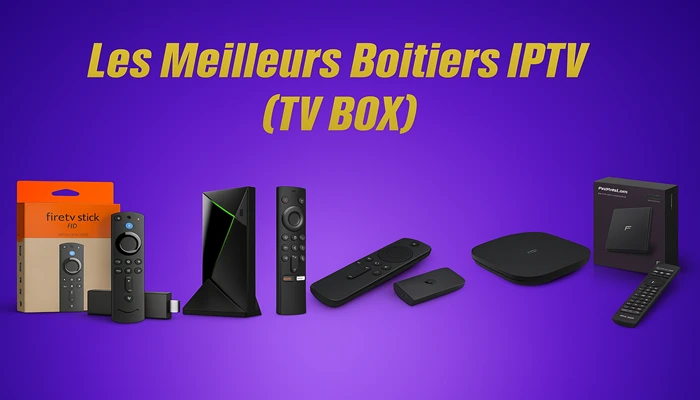IP television, or television by Internet protocol (IPTV), uses the Internet to broadcast content directly on your devices, unlike traditional broadcasting signals. It allows visualization on demand, interactive features, and a quality of streaming that adapts to your bandwidth.
Users thus benefit from personalized, flexible and often more economical access to a wide variety of content. Reliable suppliers like IPTV Quebec Make this experience even more accessible, by offering stable services, efficient and adapted to the needs of modern households. Explore more to discover the future of digital entertainment with IPTV.
Understand the basics of IP television
IP television, or IPTV (Internet Protocol Television), is a technology that allows you to broadcast television content via an internet connection, instead of traditional means such as cable or satellite.
Unlike conventional channels broadcast continuously, the IPTV uses a network protocol to send videos on demand or live directly on your connected devices (TV, smartphone, Android box, etc.). This system offers more flexibility, better image quality and advanced features such as Direct’s break, replay or access to film and series catalogs.
How IPTV differs from traditional television
Although these two consumption methods allow access to television content, they differ deeply on several aspects: the transmission method, flexibility of use, image quality and global experience. The table below highlights the main differences between these two systems.
| Criteria | IPTV | Traditional television (cable/satellite) |
| Transmission method | Internet transmission | Diffusion signals by cable or satellite |
| Access to content | On demand, according to your preferences | According to a fixed schedule |
| User experience | Personalized, interactive, with advanced functions | Linear, with little or no interactivity |
| Diffusion quality | High definition, dependent on the bandwidth | Quality limited to conventional diffusion standards |
| Stability / Limitations | May undergo slowdowns, but adaptive depending on the connection | More stable, but less flexible in terms of quality and access |
Technology behind IPTV
Understand the IPTV operation Requires an exploration of the technology that supports it. At its base, IPTV is based on streaming protocols and effective content distribution systems to transmit television programs. These technologies provide a fluid data flow from the supplier to your device.
Here is a distribution of essential components:
- Internet protocol (IP) : Facilitates direct delivery of multimedia content on the web.
- Streaming protocols : Such as HTTP Live Streaming (HLS) and Real-Time Streaming Protocol (RTSP) which manage data packets.
- Content distribution networks (CDN) : Distribute data effectively, reducing latency and buffering.
- Middleware software : Manage user interfaces and control content access.
- Decoders or applications : Convert the IP signals to the viewable media on your screen.
Advantages of the use of IPTV
One of the great advantages of IPTV is its ability to provide a highly customizable viewing experience, perfectly suited to individual preferences. Unlike classic television, you are not forced by a fixed program grid. You choose what to look at and whenwhich fully places you at the controls.
Among the main advantages of IPTV, we find:
- Great flexibility : viewing on demand, according to your desires.
- Reduced costs : Packages often more affordable than traditional cable.
- Choice of extended content : Access to a wide range of channels, films and series, including international or niche programs.
This adaptability, combined with a wide selection of content, makes IPTV a particularly attractive solution for today’s viewers.
Frequently asked questions
Can IPTV be used on several devices simultaneously?
Yes, you can use the IPTV on multiple devices simultaneously, depending on the multi-apparent compatibility of your service. Make sure your subscription plan supports simultaneous streaming, as limitations can apply, affecting the number of devices that can disseminate content at the same time.
Is a high-speed internet connection necessary for IPTV?
Yes, you will need an internet connection to High speed for IPTV. Standing requirements have a direct impact on streaming quality. Insufficient speed can cause buffer memory. Make sure your connection complies with recommended MBPS to maintain optimal viewing experiences without interruptions.
How can I solve the current IPTV streaming problems?
To help out the IPTV streaming, make sure the compatibility of the device by checking the software updates. For buffer memory problems, check that your internet speed is sufficient, erase the application cache or restart your router to effectively solve connectivity problems.
What security measures should be considered when using IPTV?
When using IPTV, you should prioritize encryption protocols to protect data transmissions. Emphasize strong user authentication to guarantee authorized access only. Regularly update software to counter vulnerabilities, and plan to use a VPN To add additional safety layers.


